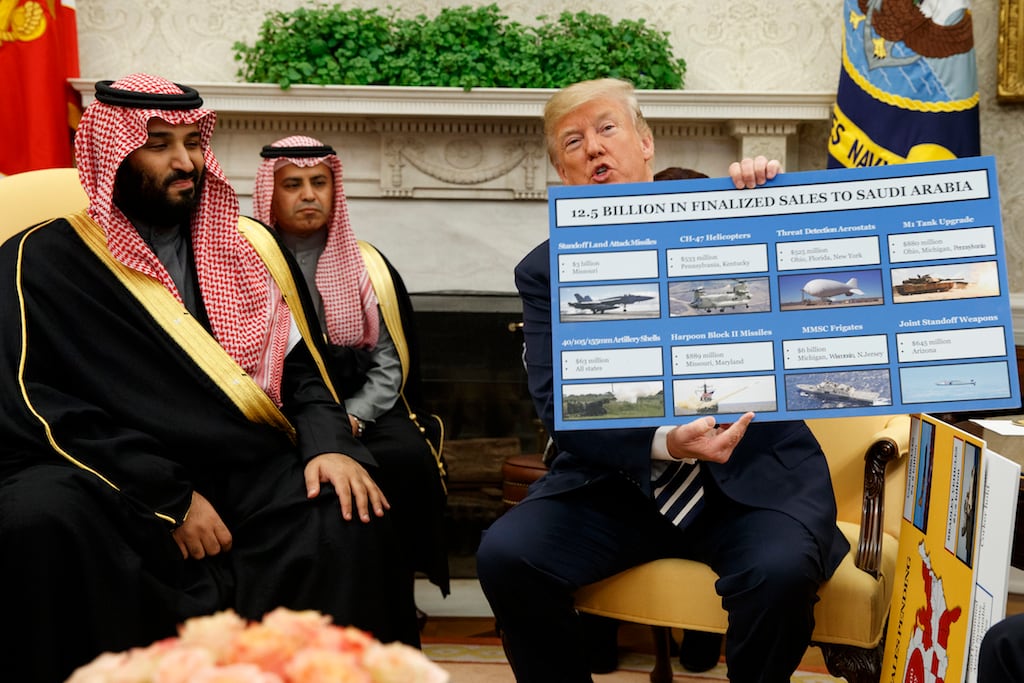SIMI VALLEY, Calif. — For military planners, the biggest question heading into 2019 is whether the president’s proposed $700 billion defense budget plan is a negotiating ploy or a sincere target.
Defense experts at the Reagan National Defense Forum on Saturday said they aren’t sure which is more worrisome.
“Because this came so late in the planning process, all the personnel costs are cooked,” said Robert Work, who served as deputy secretary of defense under both former President Barack Obama and President Donald Trump. “All the operations and maintenance money is set. So you have to go into modernization to find the money.”
“Even if we go with (the higher predictions), this becomes a real cut … We still wouldn’t be able to afford the 355-ship Navy or a larger Army.”
RELATED

For the last month, Pentagon planners have been scrambling to rework their fiscal 2020 budget proposals in the wake of Trump’s surprise announcement that he would require all federal agencies to trim 5 percent off their spending for the current fiscal year.
The president said the Defense Department would be excluded from that requirement, but would eye a military appropriations target of $700 billion — far below the anticipated $733 billion level of military planners.
In recent weeks, lawmakers have begun lobbying administration officials to raise their military spending plan. Earlier in the day at the Reagan event, Defense Secretary Jim Mattis quoted from an op-ed by Republican congressional leaders advocating for the $733 billion mark, and added that stable and adequate funding is critical for the continued recapitalization of the armed forces.
Work said that push will continue for months to come, but he remains unconvinced the president is really focused on the $700 billion number.
But Jack Keane, former Army vice chief of staff and a current defense analyst with ties to the Trump administration, said he sees the figure as far more disconcerting than just a negotiating ploy.
“I’m concerned that the director of OMB (Mick Mulvaney) is blowing in (Trump’s) ear that the deficit is mounting and defense has to take its share of the cuts,” Keane said. “And if we come in at $700 billion, there’s no growth in Army brigades, the Air Force goes backwards.”
He called the president’s $700 billion target a serious risk, especially considering the president’s “tendency to think once he has made a decision, that it’s done.”
RELATED

Work said the bigger worry is that the early spending figure fight is distracting from more critical debates, like whether House Democrats will go along with anything close to either figure and whether the two parties can come together quick enough to avoid triggering automatic spending caps still mandated under law.
“The conditions we saw in 2012 have been duplicated today,” he said. “We have divided government. Deficit concerns are rising.
“Everyone says sequestration will never happen again. I was told by everyone back then that sequestration would never happen. And it did.”
The new session of Congress begins in January. The president’s formal budget request for the Defense Department is expected in February.
Visit Defense News' Reagan National Defense Forum site for full coverage of the event.
Leo covers Congress, Veterans Affairs and the White House for Military Times. He has covered Washington, D.C. since 2004, focusing on military personnel and veterans policies. His work has earned numerous honors, including a 2009 Polk award, a 2010 National Headliner Award, the IAVA Leadership in Journalism award and the VFW News Media award.







